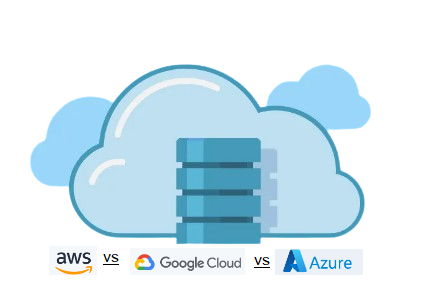Introduction to Cloud Computing Giants
In today’s rapidly evolving digital landscape, the debate of AWS vs Google Cloud vs Microsoft Azure is more relevant than ever for businesses navigating the cloud computing space. Choosing the right cloud service provider is a critical decision that can significantly impact your organization’s operational efficiency, scalability, and innovation potential. This blog post delves into a comprehensive comparison of these three cloud computing giants, each leading the market with its unique strengths and offerings.
From analyzing their core services and features to evaluating their pricing models, performance, and security standards, we provide insights that will help you understand which platform aligns best with your business needs. Whether you’re a startup looking for flexibility and innovation or an established enterprise seeking robust and integrated solutions, this guide aims to equip you with the knowledge to make an informed decision in the cloud computing realm. Let’s dive into the world of AWS, Google Cloud, and Microsoft Azure, and discover which provider stands out in this competitive landscape.
Table of Contents
AWS vs Google Cloud vs Microsoft Azure: Market Position and Industry Reputation
When it comes to selecting a cloud service provider, understanding their market position and industry reputation is crucial. This comparison of AWS, Google Cloud, and Microsoft Azure under the lens of “AWS vs Google Cloud vs Microsoft Azure” will provide insights into how each stands in the current market and their perceived reputations.
Amazon Web Services (AWS): As the pioneering force in the cloud services market, AWS has established a dominant position. It was launched in 2006, much earlier than its competitors, giving it a significant first-mover advantage. This early start allowed AWS to accumulate a vast customer base, ranging from startups to large enterprises, including notable names like Netflix and Airbnb. As of now, AWS holds the largest share of the cloud market. Its reputation is built on its broad service offerings, reliability, and innovative technologies. However, its dominance is being increasingly challenged by its competitors.
See graph below showing market share distribution among AWS, Google Cloud and Microsoft Azure:(Graph Source)
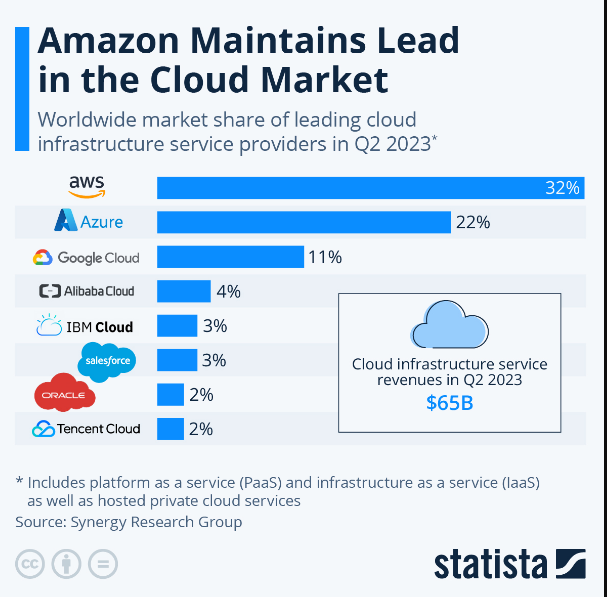
Google Cloud Platform (GCP): Google entered the cloud market with Google Cloud Platform, focusing initially on their strength areas like data analytics and machine learning. GCP is renowned for its high-performance computing and big data services, leveraging Google’s advanced infrastructure. Although it started later, GCP has quickly gained traction, especially among tech-savvy startups and companies that prioritize AI and machine learning. It is often praised for its user-friendly interface and competitive pricing models.
The Images below Google Cloud Growth trajectory in its key strengths in Machine Learning, Artificial Intelligence and Analytics:
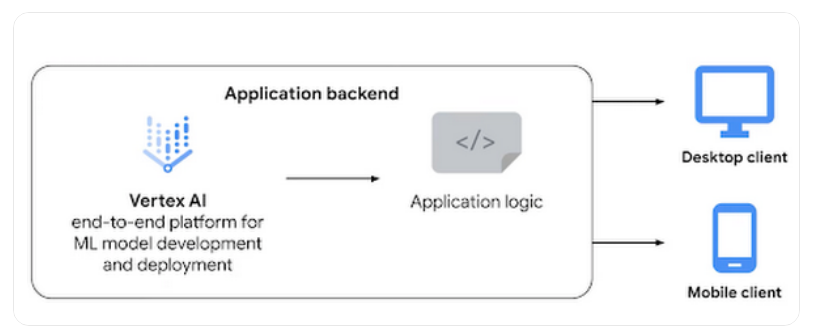
Microsoft Azure: Launched in 2010, Microsoft Azure made significant inroads into the cloud market, particularly among enterprises already using Microsoft software. Azure’s deep integration with other Microsoft services like Windows Server, Active Directory, and SQL Server makes it a preferred choice for many businesses. Its focus on enterprise needs, hybrid cloud capabilities, and strong emphasis on security and compliance have earned Azure a robust reputation. It appeals particularly to industries with strict regulatory requirements.
The Image Below highlight Azure’s integration capabilities with other Microsoft products:

In the “AWS vs Google Cloud vs Microsoft Azure” debate, each provider’s market position is shaped by their unique strengths and historical development. AWS is perceived as the all-encompassing, reliable choice, Google Cloud as the innovative, data-centric platform, and Azure as the enterprise-friendly, secure option.
Understanding these market positions and reputations can guide businesses in making an informed decision tailored to their specific needs. As the cloud computing landscape continues to evolve, keeping an eye on these factors is crucial for any organization planning to leverage cloud technologies.
Core Services and Features
When comparing “AWS vs Google Cloud vs Microsoft Azure,” it’s essential to delve into the core services and features each offers. These services are the backbone of their platforms, determining their suitability for various applications and business needs.
Amazon Web Services (AWS): AWS provides a wide array of services, making it one of the most comprehensive cloud platforms available. Key services include Amazon EC2 for virtual servers, Amazon S3 for scalable storage, and AWS Lambda for serverless computing. AWS excels in providing a vast selection of tools and services across computing, storage, databases, machine learning, analytics, and Internet of Things (IoT). Its flexibility and scalability make it a go-to choice for businesses of all sizes.
The Image below illustrate AWS’s service ecosystem, highlighting major services like EC2 S3 and Lambda:
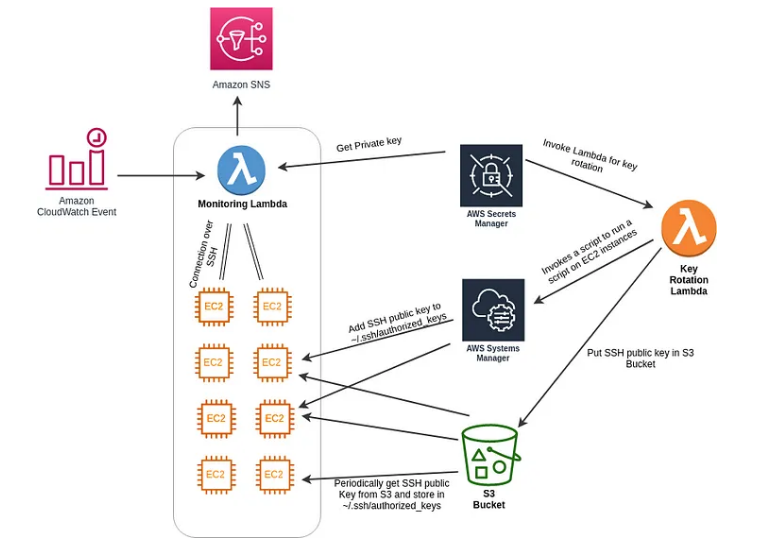
Google Cloud Platform (GCP): Google Cloud specializes in high compute offerings like Google Compute Engine and high-end data services such as BigQuery for big data analytics and Google Kubernetes Engine for container orchestration. It stands out for its strength in machine learning and data analytics, backed by Google’s cutting-edge technology. GCP is particularly favored by companies looking for advanced AI and machine learning capabilities.
The Image below shows Google Cloud Platform’s AI and ML along with Data analytics services:
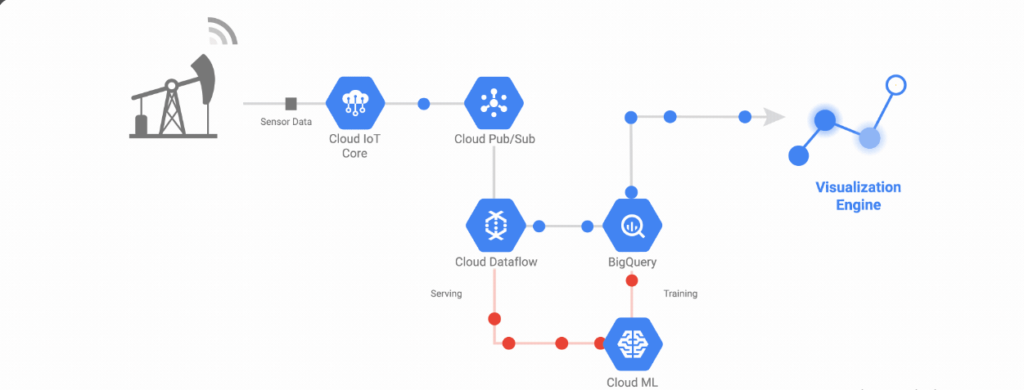
Microsoft Azure: Azure’s core services include Azure Virtual Machines for computing, Azure SQL Database for database services, and Azure Active Directory for identity services. Its integration with Microsoft’s software suite, like Office 365 and SharePoint, is a major draw. Azure is known for its enterprise-friendly services, excellent support for hybrid cloud environments, and strong focus on security and compliance, making it a preferred choice for large corporations and industries with stringent regulatory needs.
The Flowchart Image below display Azure’s integration with other Microsoft products and its hybrid cloud solutions:
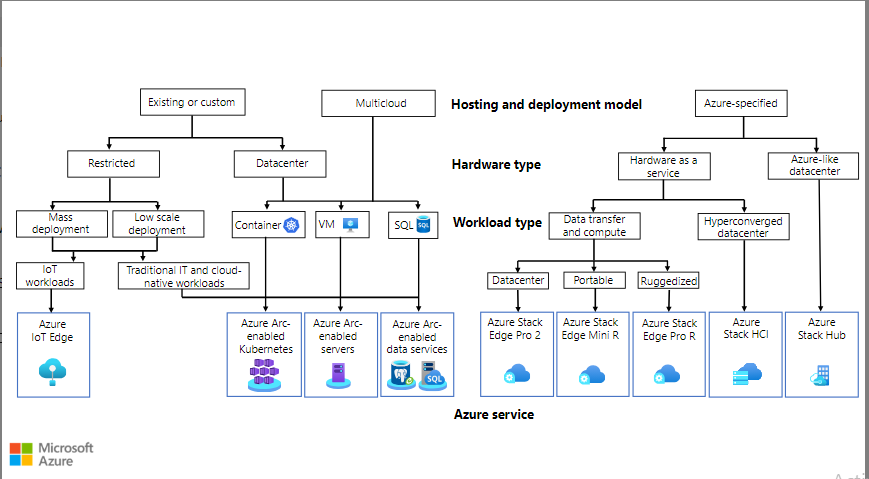
In the context of “AWS vs Google Cloud vs Microsoft Azure,” each provider offers a distinct set of core services and features tailored to different market needs. AWS provides a broad and deep range of services suitable for a wide array of applications, Google Cloud excels in AI and big data analytics, and Azure offers seamless integration with Microsoft products and a strong focus on enterprise solutions.
This differentiation in core services and features is a critical factor for businesses to consider when choosing a cloud service provider. Understanding these aspects can help companies align their specific requirements with the strengths of each cloud platform.
Pricing Models and Cost Efficiency
In the “AWS vs Google Cloud vs Microsoft Azure” comparison, pricing models and cost efficiency are crucial factors for businesses when choosing a cloud service provider. Each of these giants has its pricing strategy, which can significantly impact the total cost of cloud services for users.
Amazon Web Services (AWS): AWS employs a pay-as-you-go pricing model, which allows users to pay only for the services they use without upfront costs or long-term commitments. This model offers pricing options like on-demand, reserved instances, and spot pricing, providing flexibility and cost savings for different use cases. However, navigating AWS’s pricing can be complex due to the sheer number of services and options available. It’s known for its scalability, but costs can quickly escalate if not carefully managed.
The image below summarise AWS’s pricing model highlight the different options:
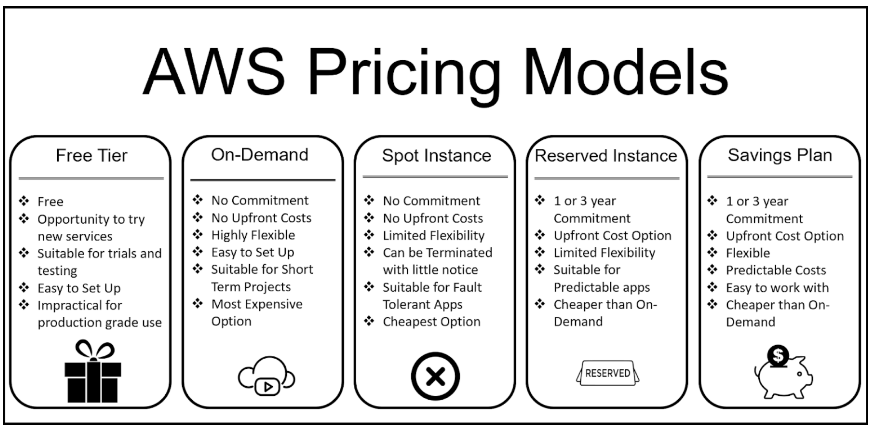
Google Cloud Platform (GCP): Google Cloud also follows a pay-as-you-go model, but it’s often recognized for its customer-friendly pricing approach. It offers sustained use discounts, which automatically apply as services are used more, and custom machine types to optimize costs for specific needs. Google’s pricing is generally more straightforward and predictable compared to AWS, making it appealing for businesses looking for simplicity and cost control.
The image below depicts Google Pricing Model:
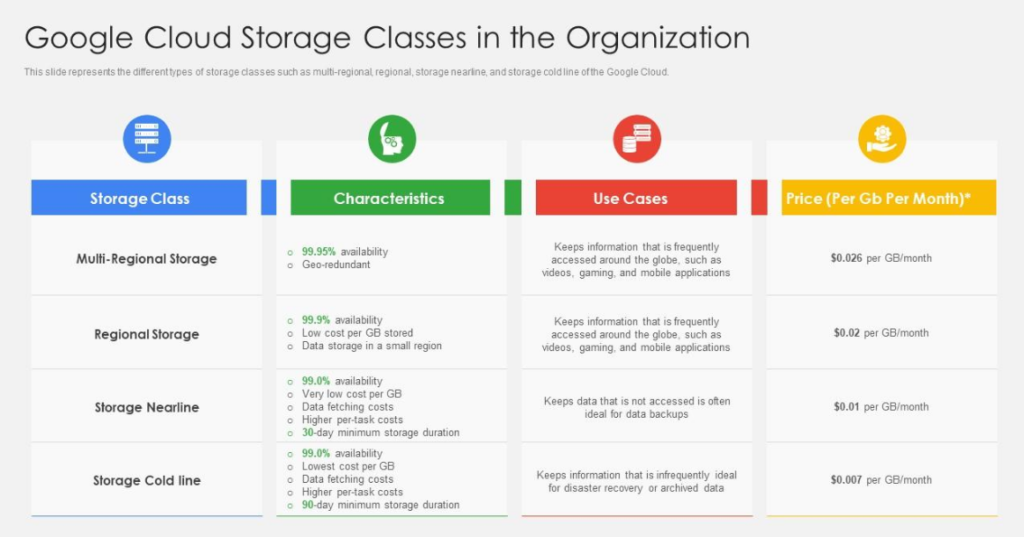
Microsoft Azure: Azure’s pricing model is similar to AWS, offering a pay-as-you-go structure with additional saving options like reserved instance pricing. It also provides a unique hybrid benefit, which allows cost savings for users already investing in Microsoft software. Azure’s pricing can be advantageous for businesses embedded in the Microsoft ecosystem, but like AWS, it requires careful management to avoid unexpected costs.
The Image below example shows the cost saving of SQL server by using the azure hybrid benefit:
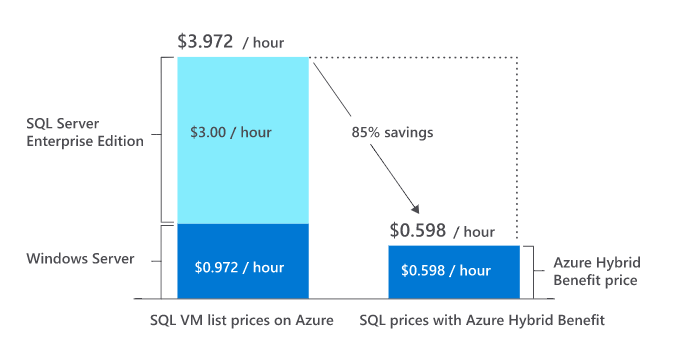
When evaluating “AWS vs Google Cloud vs Microsoft Azure” from a pricing perspective, it’s essential to consider not just the listed prices but also the potential long-term costs based on your specific usage patterns. Each provider offers a different set of discounts and savings options, which can significantly affect the overall cost-efficiency of their services.
Businesses must thoroughly analyze their cloud requirements and usage forecasts to choose the most cost-effective provider. Understanding the pricing models and how they apply to your use case is vital in making an informed decision.
Performance and Reliability
In the competitive landscape of cloud computing, “AWS vs Google Cloud vs Microsoft Azure” is often a debate centered around performance and reliability. These factors are vital for businesses relying on cloud infrastructure for critical operations.
Amazon Web Services (AWS): AWS is renowned for its robust performance and high reliability. With the largest global network of data centers, AWS ensures fast and consistent service. This extensive infrastructure contributes to its strong track record in both performance and uptime, a crucial factor for businesses requiring high availability. AWS also offers extensive tools and services to monitor and manage the performance and health of applications.
The Image below shows AWS’s local zone location:
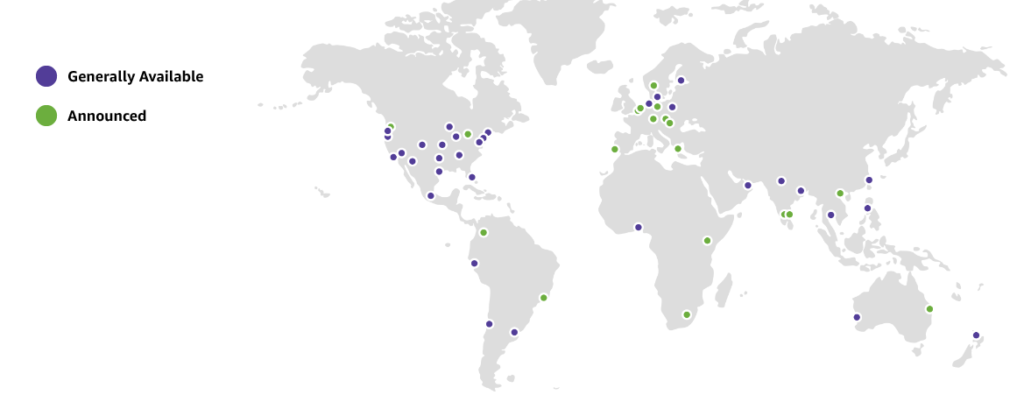
Google Cloud Platform (GCP): Google Cloud leverages Google’s own global fiber network, which ensures high-speed connectivity and performance. It’s particularly noted for its network performance, which is a significant advantage for services requiring high data throughput. GCP also provides live migration of virtual machines, which minimizes downtime during maintenance. The reliability of Google Cloud is often highlighted in its ability to handle large-scale computing tasks efficiently.
The Image below showcase Google Cloud’s live migration feature and network capabilities:
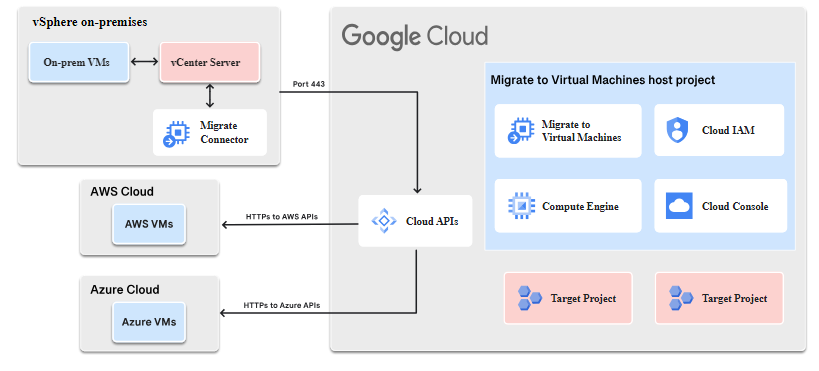
Microsoft Azure: Azure offers robust performance, particularly for enterprise-grade applications. It has a rapidly expanding network of data centers, which ensures good coverage and reliability. Azure’s integration with Microsoft’s software provides an optimized environment for Windows-based applications. While Azure has experienced some notable outages, its overall track record remains strong, and it continues to invest heavily in reliability and infrastructure.
The image below illustrate Azure’s infrastructure expansion and improvements:
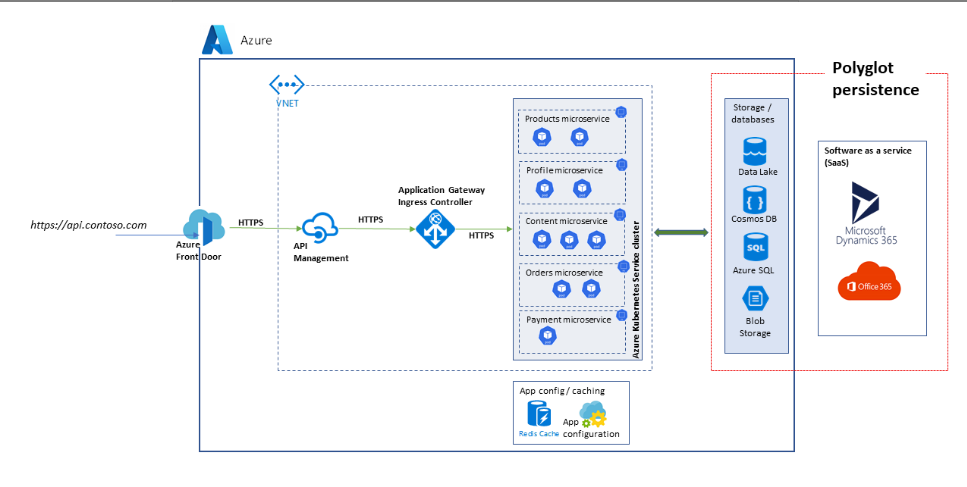
In the “AWS vs Google Cloud vs Microsoft Azure” comparison, each provider has its strengths in performance and reliability. AWS offers a vast and reliable network, Google Cloud excels in high-speed and efficient computing, and Azure provides an optimized environment for Microsoft-based applications with a focus on enterprise needs.
When selecting a cloud provider, businesses should consider these performance and reliability aspects in the context of their specific requirements. Factors like geographical coverage, network speed, and the nature of the applications being hosted play a crucial role in determining the right choice.
Security and Compliance
In the comparison of “AWS vs Google Cloud vs Microsoft Azure,” security and compliance are paramount factors. These cloud giants invest heavily in security infrastructure and compliance certifications to protect user data and meet various regulatory requirements.
Amazon Web Services (AWS): AWS is known for its robust security measures, offering a comprehensive suite of tools for identity management, encryption, and access control. AWS users benefit from data centers and a network architected to protect information, identities, applications, and devices. AWS complies with a wide range of industry-specific standards, including HIPAA for healthcare, PCI DSS for payment processing, and GDPR for data protection. This broad compliance coverage makes AWS a trusted platform for various industries.
Google Cloud Platform (GCP): Google Cloud places a strong emphasis on security, leveraging advanced security technologies developed by Google. It offers robust data encryption, both at rest and in transit, and excellent identity and access management solutions. GCP’s compliance certifications cover numerous standards, including those for data protection, financial services, and health information. Google’s commitment to transparency and privacy is a cornerstone of its approach to cloud security.
Microsoft Azure: Azure’s security framework is deeply integrated with Microsoft’s legacy in enterprise software, offering a highly secure and compliant environment. Azure provides a range of security tools for threat detection, information protection, and network security. Its compliance portfolio is extensive, covering more sectors perhaps than any other cloud provider, including government-specific requirements and international standards.
In the “AWS vs Google Cloud vs Microsoft Azure” debate, each provider demonstrates a strong commitment to security and compliance. AWS offers a vast array of tools and a broad compliance scope, Google Cloud brings cutting-edge security technologies and a strong stance on privacy, and Azure integrates seamlessly with existing enterprise security systems while offering comprehensive compliance solutions.
For businesses, the choice between AWS, Google Cloud, and Microsoft Azure in terms of security and compliance will often come down to specific industry needs and existing infrastructure alignments. Understanding the unique security features and compliance certifications of each platform is crucial in making an informed decision.
User Interface and Ease of Use
In the “AWS vs Google Cloud vs Microsoft Azure” comparison, the user interface (UI) and overall ease of use are critical aspects that can significantly influence user experience and productivity. Each cloud provider offers a unique interface and set of tools designed to simplify the management of cloud resources.
Amazon Web Services (AWS): AWS provides a comprehensive management console that offers access to all its services. While the AWS console is feature-rich, new users might find it overwhelming due to its extensive range of services and options. However, for experienced cloud professionals, the AWS interface allows for robust management and fine-grained control of cloud resources. AWS also offers the AWS Command Line Interface (CLI) for those who prefer script-based management.
Google Cloud Platform (GCP): Google Cloud is known for its user-friendly and clean interface. The GCP console is more streamlined compared to AWS, making it easier for beginners to navigate. It emphasizes an intuitive layout and clear organization of resources, which can be particularly beneficial for teams adopting cloud solutions for the first time. GCP’s integration with Google Workspace also provides a familiar environment for users already accustomed to Google’s suite of applications.
Microsoft Azure: Azure’s interface is closely integrated with other Microsoft products, offering a familiar look and feel for users who are already accustomed to the Microsoft ecosystem. The Azure portal provides a straightforward, guided experience for managing resources, with access to a wide range of tools and services. Azure also scores high in its support for hybrid cloud environments, making it easier for businesses to integrate their on-premises data centers with the cloud.
When debating “AWS vs Google Cloud vs Microsoft Azure” in terms of UI and ease of use, it’s clear that each has its strengths: AWS offers depth and breadth of control, Google Cloud provides simplicity and intuitiveness, and Azure ensures familiarity and integration with Microsoft products.
The choice among these platforms may depend on the user’s background and requirements. New users might prefer Google Cloud for its straightforward interface, while organizations deeply integrated with Microsoft products might lean towards Azure. In contrast, AWS might be the choice for users seeking comprehensive control and a wide array of features.
Support and Community
In the realm of cloud services, particularly in the “AWS vs Google Cloud vs Microsoft Azure” debate, the quality of support and the strength of the community are pivotal. These aspects not only affect problem-solving and learning but also shape the overall user experience.
Amazon Web Services (AWS): AWS has a reputation for providing extensive support through various channels. It offers a range of support plans – from basic to enterprise levels – catering to different business needs. AWS users benefit from a rich repository of documentation, tutorials, and API guides. Additionally, the AWS community is vast and active, comprising forums, user groups, and AWS events, where users can share knowledge and best practices.
Google Cloud Platform (GCP): Google Cloud provides strong support, particularly known for its technical expertise and responsiveness. It offers support packages that can be tailored to the needs of different types of users, from developers to large enterprises. The GCP community is not as large as AWS’s but is growing rapidly, with an increasing number of community-led events, forums, and online resources. Google’s documentation and case studies are particularly well-regarded for their clarity and helpfulness.
Microsoft Azure: Azure’s support system is integrated with Microsoft’s extensive support network. It offers a range of support options, including free and paid plans, with priority handling for critical business issues. Azure’s community, while smaller than AWS’s, is robust and supported by Microsoft’s long-standing presence in the enterprise IT sector. The Azure community benefits from a wealth of documentation, frequent updates, and dedicated forums for Azure users.
When considering “AWS vs Google Cloud vs Microsoft Azure” in terms of support and community, it’s evident that each provider offers unique strengths. AWS boasts a large and comprehensive support and community network. In contrast, Google Cloud is appreciated for its detailed documentation and growing community, and Azure integrates well with the broader Microsoft ecosystem, offering specialized support.
The choice of a cloud provider in this regard often depends on the level of support required and the value a business places on community interaction and learning resources. A strong community and support network can significantly enhance the cloud computing experience, offering resources for troubleshooting, learning, and networking.
Scalability and Flexibility
Scalability and flexibility are key aspects in the “AWS vs Google Cloud vs Microsoft Azure” comparison, determining how well these platforms can adapt to the changing needs of businesses. Each provider offers unique features in this regard, catering to different requirements and scenarios.
Amazon Web Services (AWS): AWS is renowned for its exceptional scalability, allowing businesses to scale up or down effortlessly based on demand. This flexibility is a hallmark of AWS, with services like Auto Scaling and Elastic Load Balancing, which help manage variability in workloads. AWS’s global infrastructure also plays a critical role in ensuring scalability, offering numerous regions and availability zones for deploying applications. This vast network makes it easier for businesses to expand globally.
The image below illustrate AWS’s scalability features like Auto Scaling and Elastic Load Balancing:
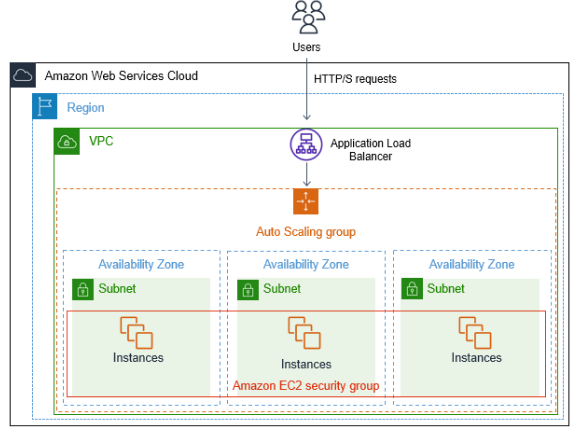
Google Cloud Platform (GCP): Google Cloud offers significant scalability, particularly known for its data analytics and machine learning services which can scale rapidly. GCP’s global fiber network ensures high-speed connectivity and seamless scaling. Additionally, Google’s commitment to open-source technologies, like Kubernetes, provides flexible options for container orchestration and management, making it a strong contender for businesses focusing on big data and machine learning.
The image below represent Google Cloud Platform’s network infrastructure and container orchestration capabilities:
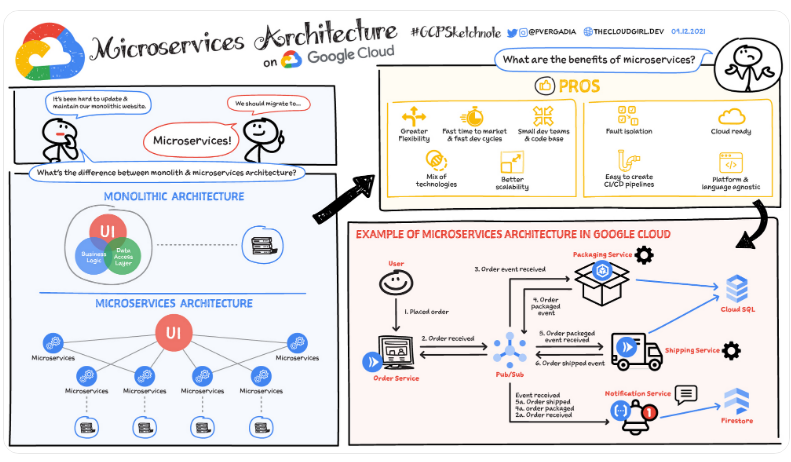
Microsoft Azure: Azure provides robust scalability and flexibility, especially for enterprises already using Microsoft’s suite of tools. Azure’s scalability features, like Azure Auto-scale, help in automatically adjusting resources based on current demands. Furthermore, Azure’s hybrid cloud capabilities allow for flexible deployment, combining on-premises and cloud resources. This flexibility is particularly valuable for businesses with complex or evolving infrastructure needs.
The image below detail Azure’s Auto-scale feature and hybrid cloud solution:
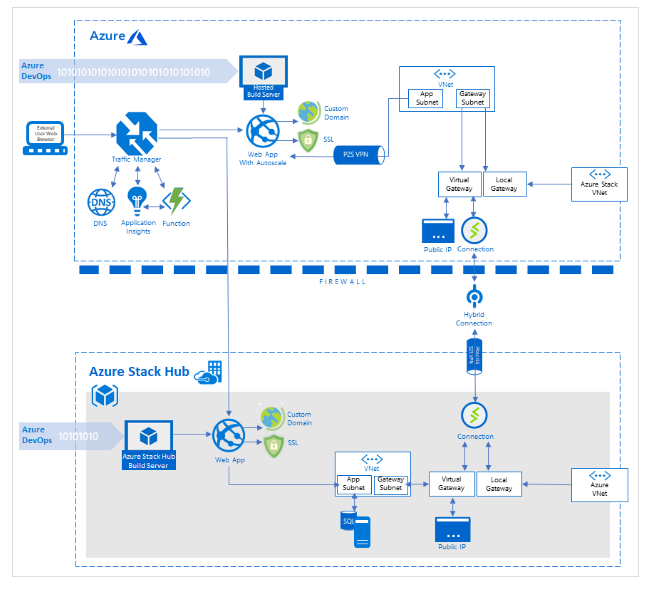
In the context of “AWS vs Google Cloud vs Microsoft Azure,” each platform brings strengths in scalability and flexibility. AWS offers broad and deep scalability options across its extensive network, Google Cloud shines with high-speed scaling and data-handling capabilities, and Azure provides strong enterprise-focused scalability, particularly for hybrid cloud environments.
For businesses, choosing a cloud provider often involves assessing how well these scalability and flexibility features align with their growth trajectory and technical requirements. Whether it’s handling sudden traffic spikes or expanding into new markets, the ability to scale efficiently is a critical consideration in selecting a cloud service provider.
Integration and Compatibility
In the discussion of “AWS vs Google Cloud vs Microsoft Azure,” the aspects of integration and compatibility are essential for businesses looking to leverage cloud computing alongside their existing infrastructure and software solutions. Each cloud provider offers distinct features in this area to facilitate seamless integration and compatibility.
Amazon Web Services (AWS): AWS provides extensive integration capabilities with a wide array of third-party applications and services. It offers various APIs and SDKs for integrating AWS services with external applications. AWS’s compatibility with a broad range of operating systems, programming languages, and architectures makes it a versatile choice for many businesses. This flexibility allows companies to continue using their preferred tools and technologies while leveraging AWS’s cloud services.
Google Cloud Platform (GCP): Google Cloud is known for its strong compatibility with open-source technologies and its commitment to open standards. This approach facilitates easier integration with a variety of systems and services, especially those based on open-source technologies. GCP also integrates seamlessly with various Google services, like Google Workspace, providing a cohesive environment for users already in the Google ecosystem.
Microsoft Azure: Azure offers excellent integration with Microsoft’s suite of products, including Office 365, SharePoint, and Dynamics 365. This integration is a significant advantage for businesses that are heavily invested in Microsoft’s ecosystem. Azure also supports a wide range of programming languages and frameworks, making it compatible with diverse application environments. Its hybrid cloud capabilities further enhance its integration potential, allowing businesses to connect their on-premises datacenters with the cloud.
When considering “AWS vs Google Cloud vs Microsoft Azure” in terms of integration and compatibility, each platform has its strengths: AWS offers broad third-party integration capabilities, Google Cloud excels in open-source compatibility and integration with Google’s own services, and Azure is the go-to choice for seamless integration with Microsoft products and hybrid environments.
For businesses, the choice among these platforms will depend on their existing infrastructure, preferred technologies, and future integration needs. The right cloud provider should not only meet current integration requirements but also offer the flexibility to adapt as the business evolves.
Innovation and Future Prospects
When assessing “AWS vs Google Cloud vs Microsoft Azure,” it’s crucial to consider not only their current offerings but also their approach to innovation and future prospects. These factors indicate how each provider is likely to evolve and shape the cloud computing landscape.
Amazon Web Services (AWS): AWS has consistently been at the forefront of cloud innovation, continually expanding its services and capabilities. Known for its pioneering spirit, AWS invests heavily in new technologies like artificial intelligence (AI), machine learning (ML), and the Internet of Things (IoT). AWS’s roadmap suggests a continued focus on enhancing cloud capabilities and leading in emerging technologies. This commitment to innovation positions AWS to maintain its market leadership and offer cutting-edge solutions to its users.
The image below highlight AWS’s key innovation and future technology focus:
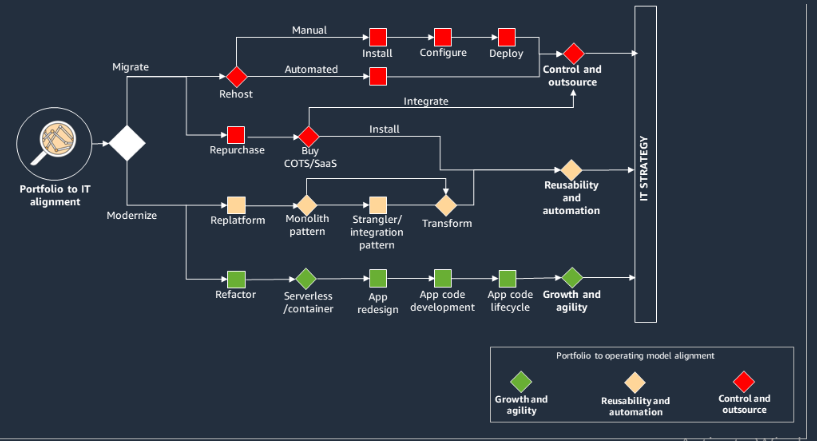
Google Cloud Platform (GCP): Google Cloud stands out for its strengths in data analytics, AI, and ML, leveraging Google’s expertise in these areas. It’s known for its contributions to open-source projects and commitment to sustainable, green computing. Looking ahead, GCP is likely to continue pushing the envelope in AI and analytics, while also focusing on making cloud computing more accessible and environmentally friendly.
The image below showcase GCP’s advancements in AI, ML and sustainable cloud solution:
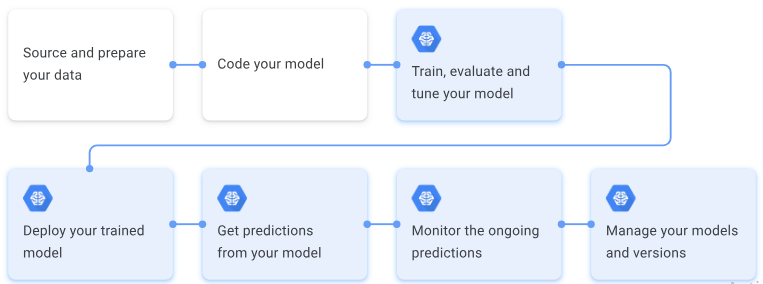
Microsoft Azure: Azure is recognized for its integration with Microsoft’s vast array of software and services, and its focus on enterprise solutions. Azure’s innovation is often geared towards enhancing enterprise cloud services, security solutions, and hybrid cloud environments. Future prospects for Azure include deeper integration with AI and ML, improvements in hybrid cloud offerings, and expanding its global cloud infrastructure to reach more regions.
The image below depict Azure’s future initiatives in AI, hybrid cloud and global infrastructure expansion:
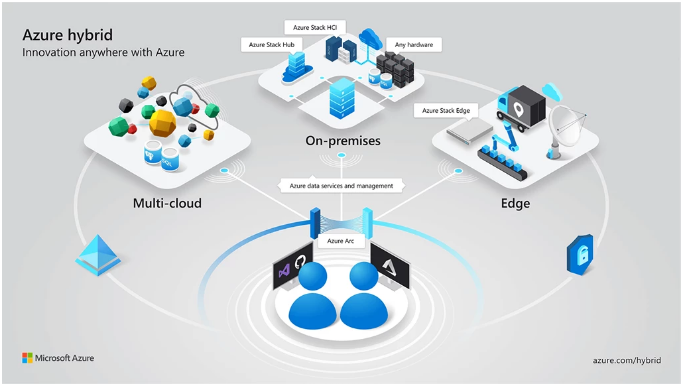
In the “AWS vs Google Cloud vs Microsoft Azure” debate, each provider brings unique innovation strengths: AWS in broad cloud capabilities and emerging technologies, Google Cloud in AI and sustainability, and Azure in enterprise solutions and global reach.
For businesses, understanding these innovation trajectories and future prospects is vital when aligning with a cloud provider that can support their long-term growth and evolving technological needs. The provider chosen should not only meet current requirements but also be capable of adapting to future technological trends and business challenges.
Ecosystem and Partnerships
The ecosystem and partnerships of a cloud service provider play a critical role in the “AWS vs Google Cloud vs Microsoft Azure” comparison. These networks not only extend the capabilities of the cloud services but also provide users with a range of options to meet their specific needs.
Amazon Web Services (AWS): AWS boasts a vast and diverse ecosystem, consisting of a large network of partners, including independent software vendors (ISVs) and system integrators (SIs). This extensive network enables AWS to offer a wide variety of tools, applications, and services to its users, enhancing the AWS cloud experience. AWS also has a strong marketplace where users can find a multitude of third-party software and services that integrate seamlessly with AWS.
Google Cloud Platform (GCP): Google Cloud’s ecosystem is notable for its focus on cutting-edge technologies and open-source solutions. GCP partners predominantly with companies specializing in data analytics, AI, and machine learning. The Google Cloud Partner Advantage program provides a platform for partners to build, market, and sell their solutions, thereby enriching the GCP ecosystem. Additionally, GCP’s strong ties with Google Workspace and other Google services enhance its value proposition.
Microsoft Azure: Azure’s ecosystem is deeply integrated with Microsoft’s overall product portfolio, offering seamless compatibility with Microsoft software and services. Azure benefits from a long-standing relationship with a wide range of enterprise-focused partners. These partnerships provide comprehensive solutions and services, particularly in the domains of enterprise resource planning (ERP) and customer relationship management (CRM). Azure also has a thriving marketplace for third-party solutions that complement its cloud offerings.
In the “AWS vs Google Cloud vs Microsoft Azure” debate, each cloud provider’s ecosystem and partnerships reflect their strategic focus areas: AWS offers a broad and versatile network, Google Cloud emphasizes cutting-edge technology and open-source partnerships, and Azure focuses on enterprise solutions and integration with Microsoft products.
For businesses evaluating these cloud providers, considering the strength and compatibility of their ecosystems and partnerships is crucial. The right cloud provider should not only offer a robust set of services but also a network of partners and solutions that can augment and support their specific business needs.
Case Studies and Real-World Applications
Exploring case studies and real-world applications is essential in understanding the practical implications of choosing between “AWS vs Google Cloud vs Microsoft Azure.” These examples provide insights into how different businesses leverage cloud technologies to drive innovation and efficiency.
Amazon Web Services (AWS): AWS’s versatility is showcased in its wide array of case studies across various industries. For example, Netflix utilizes AWS for nearly all its cloud computing and storage needs, highlighting AWS’s capacity to handle high volumes of data and streaming content. Airbnb is another example, leveraging AWS’s scalability to manage its massive database of listings and user traffic. These cases demonstrate AWS’s ability to support high-demand applications and rapidly growing data requirements.
Google Cloud Platform (GCP): Google Cloud’s strengths in data analytics and machine learning are evident in its real-world applications. Spotify’s use of Google Cloud’s data processing and analytics tools to enhance user experience is a prime example. Another case is Snap Inc., which utilizes GCP for hosting and computing infrastructure, benefiting from Google’s expertise in handling large-scale data and network management.
Microsoft Azure: Azure’s focus on enterprise solutions is reflected in its case studies. For instance, Johnson Controls uses Azure’s IoT solutions to optimize building efficiency and operations. The British healthcare system, NHS, adopted Azure to streamline its operations and improve patient care, showcasing Azure’s ability in handling sensitive data and compliance requirements.
In the debate of “AWS vs Google Cloud vs Microsoft Azure,” these case studies and real-world applications reveal how each platform caters to different business needs. AWS is a robust choice for handling large-scale data and traffic, Google Cloud excels in analytics and machine learning applications, and Azure is preferred for enterprise-level solutions and compliance-centric industries.
Understanding how different organizations utilize these cloud platforms can guide businesses in making an informed decision based on similar operational needs or industry requirements. The right cloud provider should align with a company’s strategic objectives, offering the necessary tools and services to support its growth and innovation.
Final Comparison and Recommendations
Concluding our analysis on “AWS vs Google Cloud vs Microsoft Azure,” it’s important to synthesize the information gathered to provide final recommendations. This comparison aims to assist businesses in making an informed decision based on their specific needs and goals.
Amazon Web Services (AWS): AWS stands out for its extensive range of services, global infrastructure, and scalability. It’s ideal for businesses that require a vast selection of tools and features, high scalability, and a reliable global presence. AWS is particularly suited for large enterprises and organizations with complex cloud computing needs.
Google Cloud Platform (GCP): Google Cloud shines in areas of data analytics, machine learning, and its integration with Google’s advanced technologies. It is a great choice for businesses prioritizing cutting-edge AI and data analytics capabilities, as well as those looking for a user-friendly and cost-effective cloud solution. Startups and companies in the technology sector might find Google Cloud particularly appealing.
Microsoft Azure: Azure is the go-to choice for businesses heavily invested in the Microsoft ecosystem. Its seamless integration with Microsoft software and services makes it a strong contender for enterprises and businesses seeking robust hybrid cloud solutions. Azure also stands out for its focus on security and compliance, making it suitable for industries with stringent regulatory requirements.
Recommendations:
- For Large-Scale Enterprises: AWS, with its broad and deep service offerings and global infrastructure, is well-suited for large enterprises with diverse and complex requirements.
- For Cutting-Edge Tech and Data-Driven Companies: Google Cloud is recommended for businesses focusing on AI, machine learning, and data analytics, benefiting from Google’s expertise in these areas.
- For Businesses in the Microsoft Ecosystem: Azure is the preferred choice for organizations already using a range of Microsoft products, looking for seamless integration and robust hybrid cloud capabilities.
- For Startups and Small Businesses: Consider Google Cloud for its user-friendly interface and cost-effective solutions, or AWS for its flexibility and vast range of services.
- For Industries with High Regulatory Compliance: Azure is a strong option due to its comprehensive compliance and security features.
AWS vs Google Cloud vs Microsoft Azure represents a choice between three excellent cloud service providers, each with its unique strengths and specialties. The final decision should be based on your business’s specific needs, technical requirements, and strategic direction.
Conclusion
Navigating the cloud computing landscape, especially when comparing “AWS vs Google Cloud vs Microsoft Azure,” can be a complex but rewarding journey. Each of these cloud giants – AWS, Google Cloud, and Microsoft Azure – offers a unique set of features, capabilities, and strengths, catering to diverse business needs and technological requirements.
AWS, with its vast array of services and global reach, is a powerhouse of cloud computing, suitable for businesses that demand a wide range of tools and scalability. Google Cloud, leveraging Google’s expertise in AI and data analytics, offers innovative solutions that are particularly beneficial for companies focusing on cutting-edge technology and data-driven decision-making. Meanwhile, Microsoft Azure provides deep integration with Microsoft’s suite of products, making it a compelling choice for businesses embedded in the Microsoft ecosystem and those requiring robust hybrid cloud solutions.
The choice between AWS, Google Cloud, and Microsoft Azure should align with your business’s current infrastructure, future growth plans, and specific industry needs. Whether you prioritize advanced AI capabilities, global scalability, or seamless integration with existing systems, there is a cloud provider that fits your unique business scenario.
As cloud technology continues to evolve, staying informed about these platforms’ latest offerings and advancements will be crucial. Remember, the decision you make today should not only solve your current challenges but also position you well for future technological shifts and business transformations.
In conclusion, AWS, Google Cloud, and Microsoft Azure each present compelling arguments in their favor, and the ultimate decision rests on how their offerings align with your business objectives. By carefully considering your specific needs and the insights provided in this comparison, you are well-equipped to make an informed choice in your cloud computing journey.

